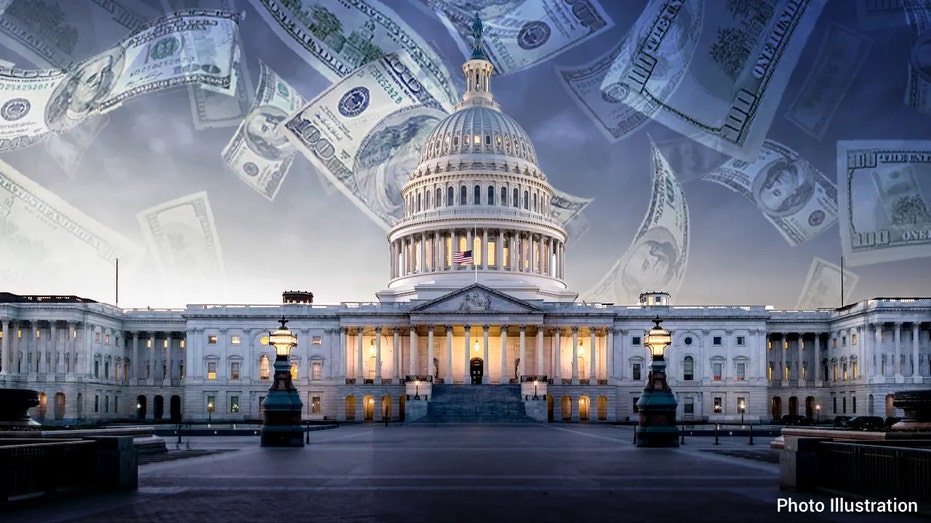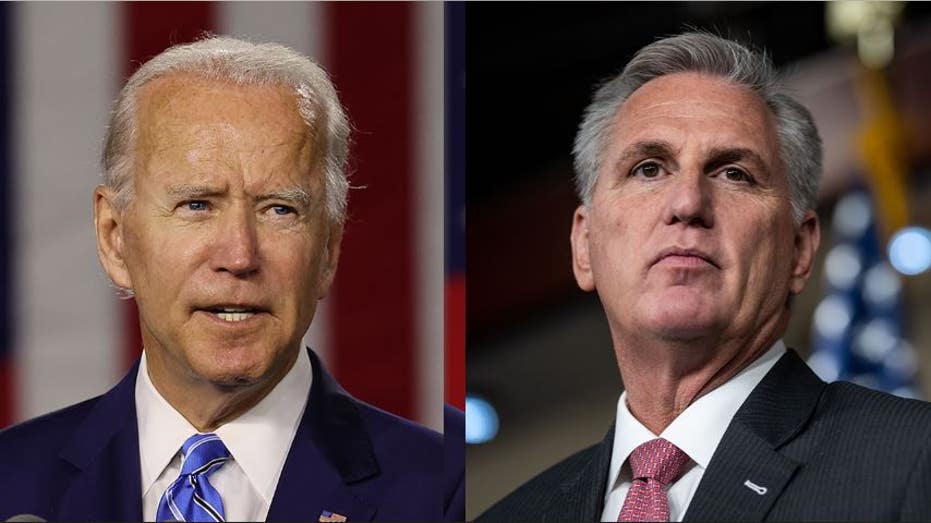Federal deficit tops $2 trillion over last 12 months
CRFB's analysis found that federal spending rose by 11% as tax revenue fell by 6%
Debt bill a step in the right direction, says Rep. Bryan Steil
Rep. Bryan Steil, R-Wis., discusses the debt limit bill as it heads to President Bidens desk, Americans concerns over inflation and the passing of the Equal Opportunity for All Investors Act of 2023.
The federal government’s budget deficit grew to $2.1 trillion over the last 12 months and is more than twice as large as the pre-pandemic deficit, according to a new report by the nonpartisan Committee for a Responsible Federal Budget (CRFB).
The CRFB’s analysis found that the 12-month rolling deficit is up $170 billion compared to last month due to a $236 billion monthly deficit that was announced last week for May 2023. That figure represents a significant increase on the $66 billion deficit that the federal government ran last May and is attributable to spending increasing by 11% as tax revenue fell by 6%.
"With deficits expanding, substantial policy change will be needed to bring spending and revenue in line," the CRFB wrote. "The roll-off (and possible reversal) of student debt cancellation and implementation of the Fiscal Responsibility Act are likely to help reduce deficits in the near term, but much more action will be needed to stem the unsustainable medium- and long-term trajectory of the debt."
HOW DOES BIPARTISAN BUDGET, DEBT LIMIT DEAL IMPACT SPENDING, DEFICIT?

The federal government has run a $2.1 trillion budget deficit over the last 12 months according to the nonpartisan Committee for a Responsible Federal Budget. (Fox News Photo Illustration / Fox News)
"Policymakers should work together to get the economy and our fiscal health back on track," the budget watchdog noted.
CRFB wrote that deficits have totaled 8.1% of gross domestic product (GDP) – a measure of overall economic output – over the past year. That’s more than three times the historical average of 2.5% and three percentage points higher than 2019.
BIPARTISAN BUDGET DEAL WILL LEAVE NEW CONGRESS, POSSIBLE NEW PRESIDENT FACING RENEWED BUDGET DEBATE

President Joe Biden and House Speaker Kevin McCarthy (R-Calif.) recently reached a deal to raise the debt limit and implement spending caps. ( Chip Somodevilla/Kent Nishimura / Los Angeles Times / Getty Images)
The widening deficits come as federal spending has risen on Medicare, Social Security, interest on the debt in addition to the pending student debt cancellation plan which the Supreme Court may either allow to proceed or block when it rules on the topic in the next month.
Further, tax revenue has slowed compared to a year as revenue as a percentage of GDP it has declined from a near-record of 19.6% of GDP in fiscal year 2022 to about 17.2% of GDP in the past 12 months – a level more in line with historical averages.
By contrast, federal spending amounted to about 25.3% of GDP over the last 12 months, leaving a deficit amounting to 8.1% of GDP.
GET FOX BUSINESS ON THE GO BY CLICKING HERE
The Congressional Budget Office (CBO) released its monthly budget update last week which found that in the first eight months of fiscal year 2023, the deficit totaled $1.2 trillion – an increase of $735 billion compared to the same period a year ago.
The CBO’s current projection for FY2023 is that the federal budget deficit will total $1.5 trillion for the fiscal year, although the agency notes that estimate "is subject to considerable uncertainty" because revenue collections may continue to lag forecasts and spending may differ as well.
FOX Business’ Alexa Angelus contributed to this report.




















